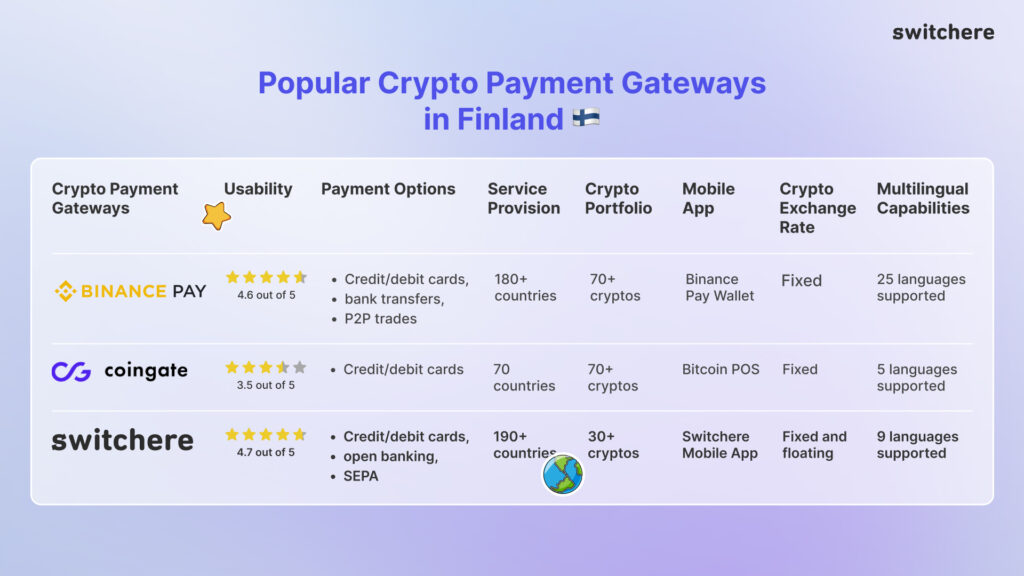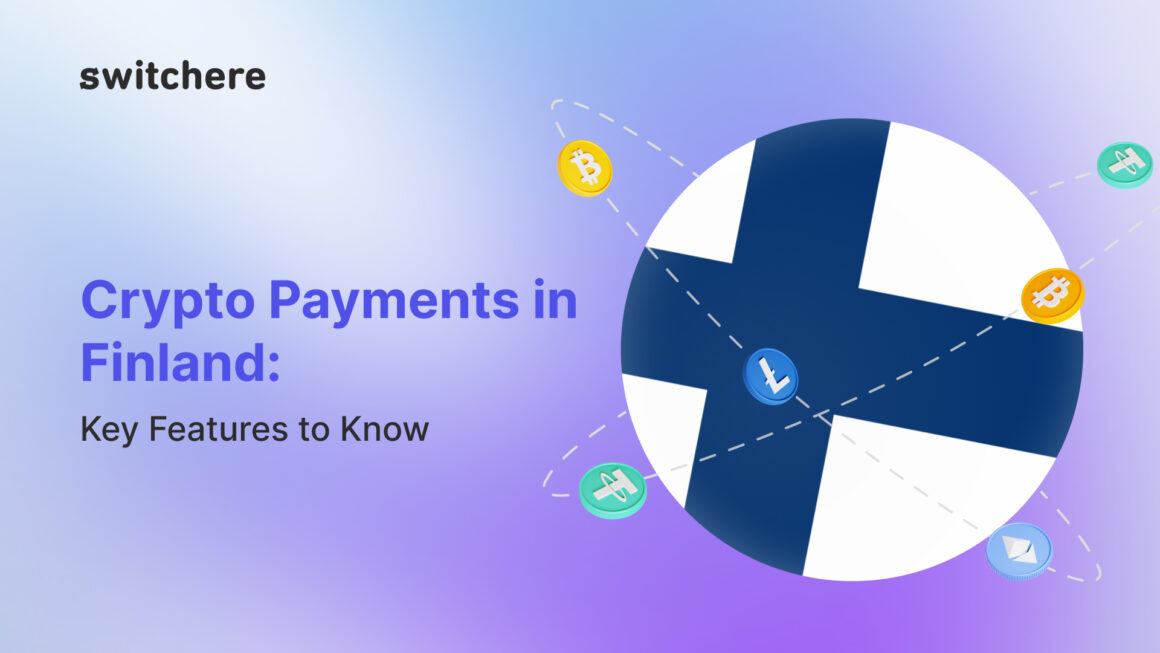In recent years, the world has witnessed a paradigm shift in the financial landscape with the emergence of virtual currencies. As Finland, a Nordic nation known for its technological advancements, embraces the digital revolution, it becomes imperative to delve into the legal framework governing virtual currencies within its borders. This article aims to provide a comprehensive analysis of the status of cryptocurrencies and crypto payments in Finland, shedding light on key licensing requirements for businesses and crypto payment gateways.
The Finnish Crypto Landscape
Finland, with its progressive approach to technology, has been receptive to the growing influence of cryptocurrencies. As of the last update in 2022, Finland does not have specific legislation tailored exclusively for virtual currencies. However, the country operates within the European Union (EU), and thus, EU regulations and guidelines inherently influence the legal landscape.
The Finnish Financial Supervisory Authority (FIN-FSA) oversees financial regulations in the country, including those related to cryptocurrencies. In 2019, the FIN-FSA classified cryptocurrencies as a “financial service” and brought them under the purview of the Anti-Money Laundering (AML) regulations. This move aimed to enhance transparency and mitigate the risks associated with digital currencies, aligning with broader EU initiatives.
Status of Cryptocurrencies and Crypto Payments
Cryptocurrencies, including popular ones like Bitcoin and Ethereum, are widely accepted in Finland. Many businesses, ranging from small local enterprises to larger corporations, have started incorporating crypto payments as an alternative to traditional methods. This acceptance, however, is not universal, and it is at the discretion of individual businesses to adopt virtual currencies as a means of payment.
In terms of taxation, the Finnish Tax Administration treats cryptocurrencies as taxable assets. This means that gains from the sale or exchange of virtual currencies are subject to capital gains tax. The clarity in tax regulations provides a sense of legitimacy to the use of cryptocurrencies in financial transactions.
Crypto Licensing Requirements for Businesses
For businesses operating in the cryptocurrency space, compliance with AML regulations is crucial. The FIN-FSA, in alignment with EU directives, requires businesses involved in cryptocurrency exchanges, wallet providers, and other related services to register with the authorities. This registration process involves thorough due diligence on the part of businesses, including Know Your Customer (KYC) procedures.
Moreover, companies offering crypto-related services need to adhere to customer identification, reporting of suspicious transactions, and record-keeping obligations. Failure to comply with these regulations can result in penalties and the revocation of licenses, emphasizing the importance of a robust and compliant business model.
Popular Crypto Payment Gateways in Finland
In Finland, the integration of crypto payment gateways has gained traction, allowing merchants to accept virtual currencies seamlessly. Payment service providers dealing with cryptocurrencies are also subject to AML regulations and must obtain the necessary licenses from the FIN-FSA. Ensuring secure and compliant transactions is paramount to fostering trust in the evolving landscape of crypto payments.

Binance Pay
Binance Pay, operated by the world’s largest virtual currency exchange Binance, has expanded its presence in Finland. Binance Pay facilitates peer-to-peer TXs using virtual currencies, offering a convenient way for its clients to send and receive payments in all major virtual currencies. With its integration across the Binance ecosystem, Binance Pay enables seamless interoperability between different digital assets. As Finland embraces digital innovation, Binance Pay emerges as a compelling option for individuals and businesses seeking reliable payment solutions.
CoinGate
CoinGate is another prominent virtual currency payment gateway that caters to the Finnish market. It supports a wide range of virtual currencies and provides merchants with flexibility in accepting digital payments. CoinGate offers customizable invoicing solutions and merchant tools to streamline the payment process. Additionally, CoinGate prioritizes security, implementing robust measures to protect users’ funds and personal information.
Switchere
In essence, Switchere prioritizes simple user workflow, full legal compliance, seamless website/app usability, speedy transaction processing and detailed statistics. Since its inception in 2019, the company has undergone significant improvements in terms of its business model management and service provision. Nowadays, Switchere operates within the scope of B2C and B2B models and renders its mainstream virtual currency exchange operations to individuals and business entities alike.
For businesses (wallets, trading platforms, online stores, iGaming, non-profit organizations, etc.) wishing to accept crypto payments, integrate fiat on-ramping powered by Switchere or use smart plug-and-play NFT Checkout, the fintech company offers best-in-class business integration tools and crypto-related services. The key steps to partnering with Switchere are filling out a business integration application and further negotiations with the Sales Representative.
Conclusion
Finland, with its tech-savvy population and progressive regulatory environment, stands at the forefront of the crypto revolution in Europe. While the legal framework for virtual currencies is not exhaustive, the country adheres to EU directives, providing a foundation for the responsible adoption of cryptocurrencies. As businesses and payment gateways navigate the crypto landscape, compliance with AML regulations remains a key determinant for success. The evolving nature of the virtual currency legal framework in Finland signifies the need for ongoing dialogue between regulators, businesses, and the community to ensure a harmonious integration of cryptocurrencies into the nation’s financial ecosystem.
